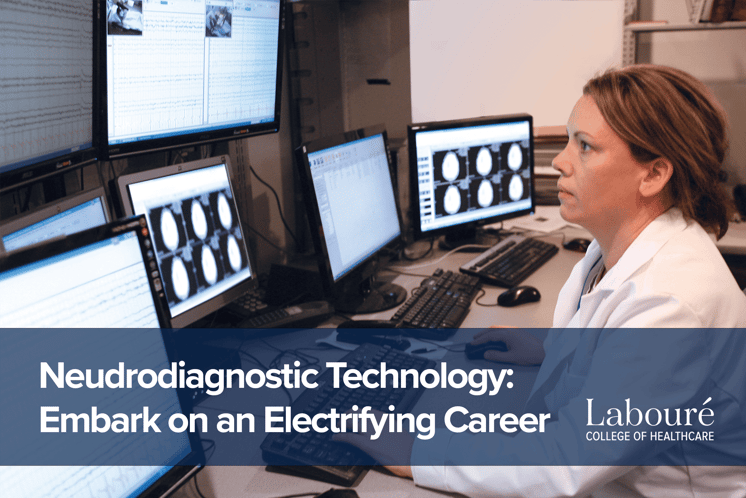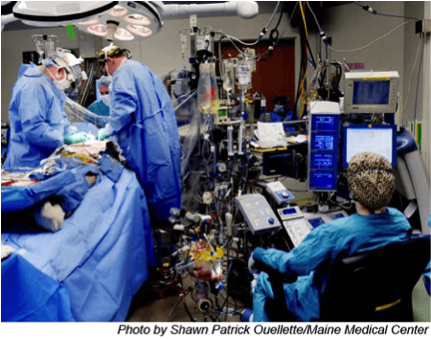As we celebrate NDT Week 2018, here are some fast facts about the exciting and expanding fields of Neurodiagnostic Technology (NDT) and Intraoperative Neuromonitoring (IONM).
Intraoperative Neuromonitoring Fast Facts

Common IONM job titles:
- Intraoperative Neuromonitoring Technologist
- Neurodiagnostic Technologist
- Neurophysiology Technologist
- Neuromonitoring Specialist
- Neurophysiologist
- Registered Electroneurodiagnostic Technologist (R.EEGT)
- Certified Neurointraoperative Monitoring Technologist (CNIM)
- Registered Nerve Conduction Technologist (R.NC T.)
- Registered Evoked Potential Technologist (R.EPT.)
- Registered Sleep Technologist (R.ST)
- Registered Polysomnography Technologist (R.PSGT)
What does an Intraoperative Neuromonitoring Technologist do?
- Works in an operating room
- Monitors a patient who is under anesthesia while the doctor is performing the surgery or procedure
- Determine if the patient is losing oxygen to the brain and about to have a stroke and alert the surgeon, by using electrical potentials emitted from the patient’s nervous system
- Works collaborating with the surgical team to improve patient outcomes
- Perform a variety of specialized recordings, including:
- Electroencephalograms (EEG)
- Evoked Potentials (SSEP, BAEP, MEP)
- Electromyography (EMG)
- Cranial Nerve (CN live and triggered, SEMG/TEMG)
- Peripheral Nerve (PN) monitoring techniques
Salary Expectation:
Salaries in Massachusetts can range from $75,000 to $125,000, depending on position, rank, number of shifts worked, etc. Current national rates range between $50,000 and 100,000. (indeed.com)
Did you know…?
Labouré's IONM program is one of only 2 accredited programs in the world!
Neurodiagnostic Technology Fast Facts
.jpeg?width=600&height=400&name=Young-man-having-his-brain-waves-recorded-during-electroencephalography-832997712_1258x838%20(1).jpeg)
Common Job Titles
- Neurodiagnostic Technologist or Neurodiagnostic Technician
- EEG Technologist
- Electroneurodiagnostic Technologist
- Polysomnographic Technologist
- Registered Electroneurodiagnostic Technologist (R.EEGT)
- Registered Polysomnography Technologist (R.PSGT)
- Registered Evoked Potential Technologist (R.EPT.)
What Does a Neurodiagnostic Technologist Do?
- Works in hospitals, clinics, and doctors’ offices; more experienced technologists may work in an operating room
- Performs procedures including:
- Electroencephalograms (EEG)
- Evoked potentials (EP)
- Polysomnograms (PSG or sleep studies)
- Nerve Conduction Studies (NCS)
- Long termmonitoring, all of which may aid in the diagnosis and treatment of neurological problems ranging from common headaches, head and spinal injuries as sometimes seen in athletes, seizures, sleep disorders, strokes and unexplained comas.
- Work in research positions or the medical instrument industry
Salary Expectation:
The salary range for a Neurodiagnostic technologist ranges from $30,000 to $69,000 nationally; and from $35,000 to $74,000 in Massachusetts. Ranges may depend on position, experience, education, and hours worked. (indeed.com)
Did you know…?
Labouré College has been on the forefront of NDT since the 1970s!

.jpeg?width=600&height=400&name=Young-man-having-his-brain-waves-recorded-during-electroencephalography-832997712_1258x838%20(1).jpeg)



Comments